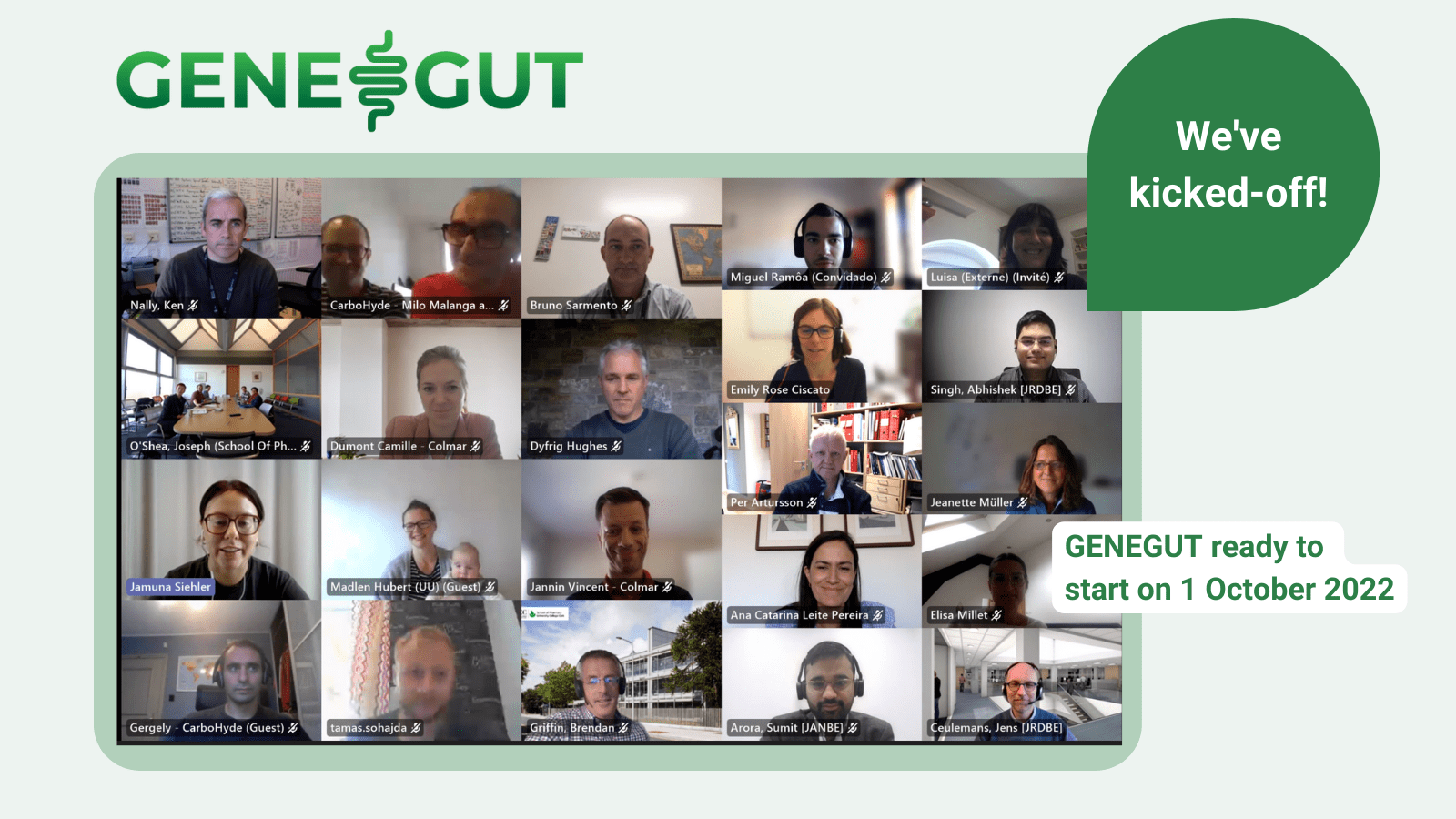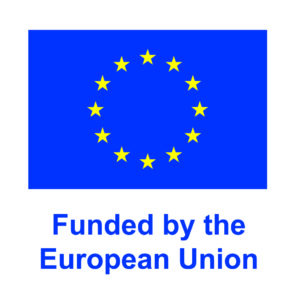The GENEGUT project is officially kicked-off! On September 26, 2022, the GENEGUT consortium got together for a half-day virtual kick-off meeting, setting the project up for a great start on October 1, 2022.
GENEGUT officially kicked-off!
Earlier this week, over 30 members of the GENEGUT consortium gathered to officially kick-off the new Horizon Europe project that will develop an RNA-based therapy for the treatment of ileal Crohn’s Disease. The meeting was opened by a warm welcome from the UCC Vice-Presideant for Research and Innovation John Cryan, encouraging the start of the project and its interdisciplinary research approach. After an introduction by project coordinator Prof. Caitriona O’Driscoll (UCC), the agenda followed the 7 GENEGUT work packages, with each WP leader providing an overview of their work plans and objectives.
- WP 1: Synthesis, formulation and characterisation of therapeutic RNA-based nanoparticles
- WP 2: Cellular specificity and mechanism
- WP 3: Formulation development for regional specificity
- WP 4: Proof of efficacy under diseased conditions
- WP 5: Early health technology assessment and regulatory
- WP 6: Communication, dissemination and exploitation
- WP 7: Project coordination and management
Caitriona O’Driscoll, Piotr Kowalski and Milo Malanga presented the work plan for WP1, which is set to start from the first day of the project and is responsible for the production of cyclodextrins, which will be the nanoparticles (NPs) containing the therapeutic RNA. This work will be carried out in close collaboration with WPs 2 and 3 as these will focus on cellular specificity and mechanisms (WP2) and formulation development for regional specificity (WP3). Per Artursson and Silvia Melgar explained how these nanoparticles will be evaluated in more complex in vitro models to determine the cellular specificity. Vincent Jannin, Joey O’Shea and Brendan Griffin (WP3) then laid out their plan to develop a novel capsule drug delivery system formulated for regional specificity. The WP4 team, represented by Silvia Melgar, Bruno Sarmento and Patrick O’Dwyer, walked the consortium through their main objective to provide proof that the release capsule containing NPs (developed in WP3) is effective under diseased conditions for patients with ileal Crohn’s Disease (CD). Based on the work of WPs 1-4, WP5, presented by Dyfrig Hughes, is set to start in year 2 after the project start. WP5 will bring in the health economics perspective, informing on the most suitable development to comply with regulatory, economic, social and ethical factors.
The two non-scientific WPs 6 and 7, concerning project coordination and management, as well as communication, dissemination and exploitation, were presented by Emily Rose Ciscato, Jeanette Müller and Jamuna Siehler. The patient perspective brought by the partner EFCCA, will be crucial in the outreach activities, but not only. As highlighted by EFCCA CEO Luisa Avedano during the kick-off meeting, their commitment to the project will allow the consortium to reach out to a large community of patients affected by CD, enabling to really integrate the patient’s perspective at different phases of the project’s research.
The 4-hour long meeting set the tone for the upcoming 4 years of exciting research and intense collaboration between 9 organisations and across 8 different countries for one joint goal: changing the treatment paradigm for patients with ileal Crohn’s Disease.
What’s next?
As the GENEGUT consortium is getting started on their work in the individual work packages, we are already preparing for our first in-person 2-Day General Assembly in January, hosted by UCC in Cork, Ireland – stay tuned!
To keep up to date with GENEGUT, follow us on Twitter and LinkedIn!


